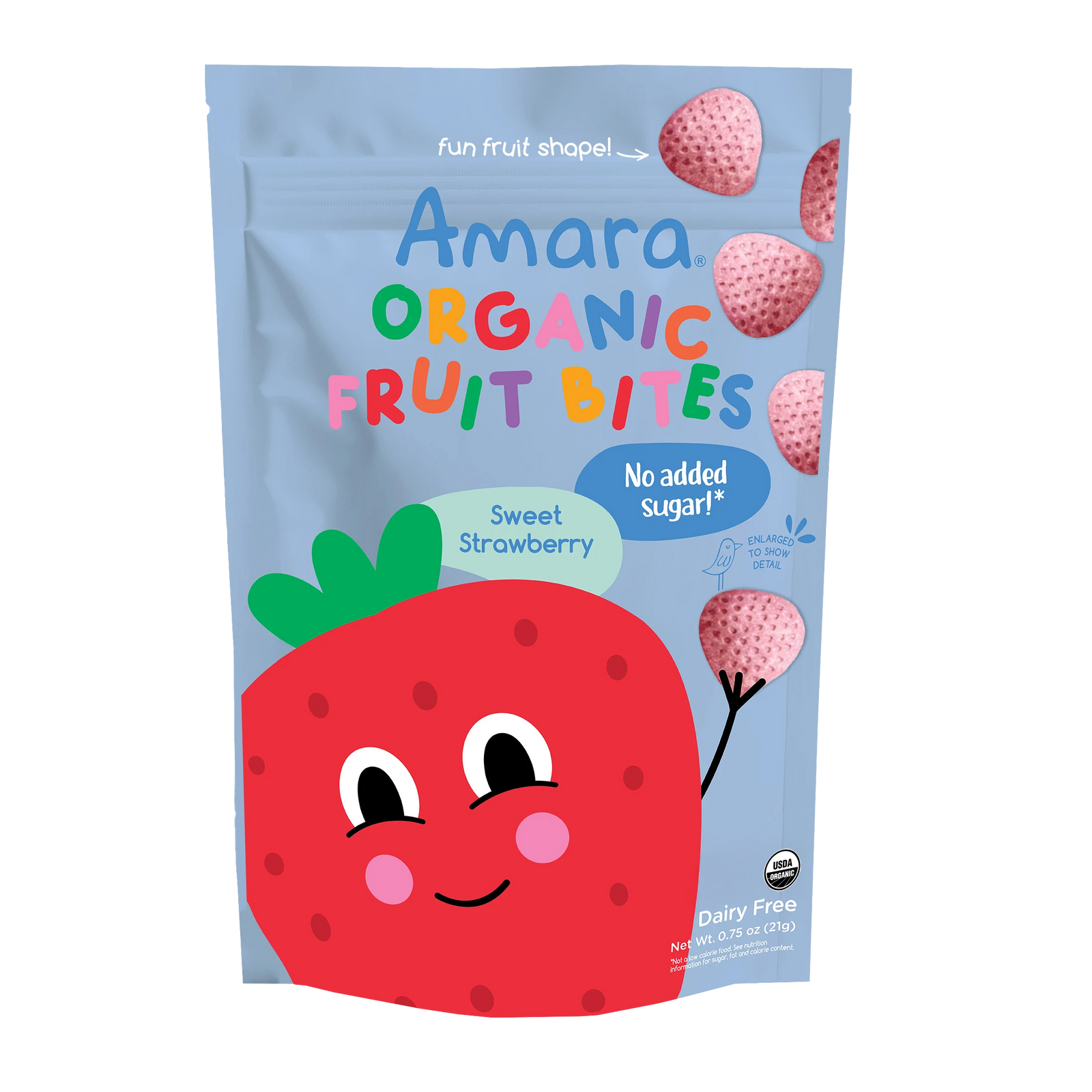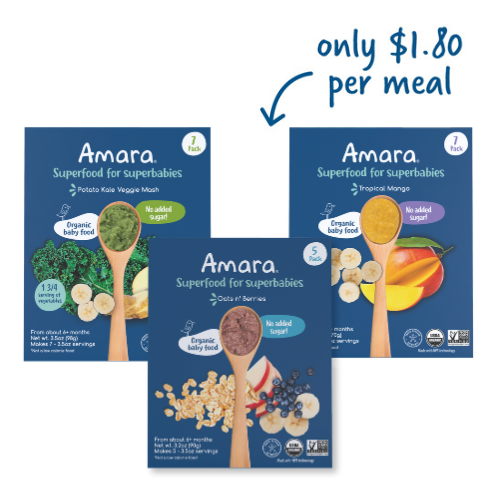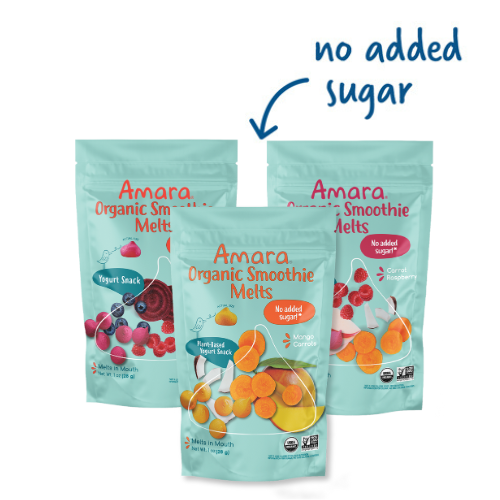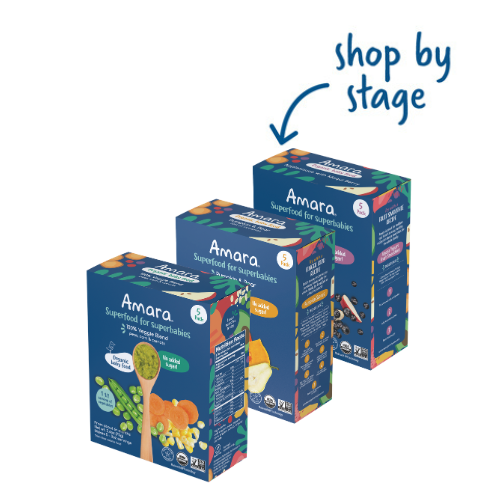Do Toddlers Need Multivitamins?
If you want the TL:DR on the question of “does my toddler need a multivitamin?” -- the answer isprobably not.
For the full scoop, keep reading or skip ahead to learn about:
Do toddlers need multivitamins? (Probably not)
Are there any exceptions? (A few, maybe)
Are there any other factors to consider? (Yes)
Do toddlers need multivitamins? (Probably not)
On the topic of pediatric multivitamin supplements, the most important takeaway -- which comes from multiple medical and professional organizations as well as individual health professionals and nutritionists -- is thatmost healthy toddlers can and should get all the micronutrients they need from real food.
If you’re wondering whether your child falls under the umbrella category of “most healthy toddlers,” the answer is again, probably yes.
Here’s the thing: vitamins can be a crucial therapy in the case of stark deficiencies, which (though common in other parts of the world) arevery uncommon in the United States -- including among children who don’t eat an ideal, healthful diet or are picky eaters. Things like rickets (low vitamin D), scurvy (low vitamin C), pellagra (low B-3), and beriberi (low B-1) are no longer realistic concerns for most American families.
The fact is that outside of “fixing” such deficiencies, we really don’t have much reason to believe that vitamins confer particular health benefits. To be fair, there doesn’t exist much data on the effects of taking multivitamins (and if the data pool is low for adults, it’s practically nonexistent for children) -- but what we do have is far from compelling.
As a result of all this^^,experts agree that the vast majority of American kids simply don’t need a vitamin.Instead of thinking too much about whether to offer your child a vitamin supplement, they say, your energy would be better focused on delivering balanced, healthful meals with a diverse spread of fruits and veggies.
Are there any exceptions? (A few, maybe)
That said --there are some caveats to the widespread consensus that pediatric vitamin supplementation is mostly futile. And many parents do opt to offer their toddlers vitamins -- in fact, some third of toddlers in the U.S. reportedly take a vitamin supplement of some sort daily. (So if you choose to offer one, you’re in good company.)
-
Vitamin D
You’re likely to hear a different story about vitamin D from anyone you ask, but the long and short of it (regardless of where you stand on supplementation) is that it’s tough to get much vitamin D from foods, and our bodies can only make vitamin D with sufficient exposure to sunlight. Given that many of us are coating our kids in sunscreen as devotedly as our parents slathered oil over their skin decades ago -- and going to all lengths to protect our kids from sun exposure in general -- it’s possible that more children today aren’t getting enough vitamin D.
Frankly,it’s tough to tell -- not least of which is because no one agrees what constitutes “sufficient” or “ideal” vitamin D levels among kids (or adults, for that matter). But one 2008 study did conclude that 40% of babies and toddlers didn’t have adequate/optimal vitamin D levels.
Thus, if you wanted to offer your child a daily vitamin D supplement, there’s some evidence to back you up there. (BTW, the AAP doesn’t formally recommend a vitamin D supplement, but it does single out daily vitamin D needs in its "no vitamins necessary” statement for parents.) Toddlers 1-3 years old need 600 international units (IU) daily.
-
Restricted Diets
If your child has a restricted diet of one variety or another (vegan, vegetarian, multiple food allergies, etc.), they don’t inherentlyneed a multivitamin, but there’s more reason to think they might benefit from one. The logic here is sensible: kids who aren’t eating whole food groups might be missing out on something, and it’s possible that a multivitamin could help cover their proverbial nutrition bases. In particular, children who don’t regularly consume meat or dairy may be more likely to have low iron, low calcium, or low vitamin B levels.
-
Children with medical conditions/chronic diseases
Some illnesses can affect how the body metabolizes foods and impact vitamin absorption -- if your child has an underlying medical condition or chronic illness, you may want to speak with your pediatrician about whether to offer a multivitamin supplement. (Chances are, families in this camp have already discussed the issue with health providers.)
Are there any other factors to consider? (Yes)
-
Excess Is Not Harmless
We live in America, where the belief that “more is better” apparently runs in the water… but when it comes to vitamins,this is not so.Excessive vitamin intake can be harmful for children, and this is especially something to watch out for given that:
1) some staple foods are vitamin-fortified; and
2) supplements are not strictly standardized or monitored for safety (see below).
For reference:
- Cereals and refined grains are fortified with iron, the vitamin B complex, and folic acid;
- Milk is fortified with vitamin D;
- Salt is fortified with iodine.
Without diving into any scary examples -- because severe episodes are RARE -- excess dosages can be toxic (even potentially posing a lethal risk) and also have the ability to interact with separate medications. So remember, with vitamins, more is not necessarily better (or safe).
Note that vitamins A, D, E, and K (the fat-soluble vitamins the body can store for longer periods of time) are ones to watch out for (i.e., they pose a greater risk for toxicity).
-
Supplements Are Not Regulated
The supplement industry is a huge, multi-billion-dollar industry that by-and-large operates outside of any systematic safety regulations and/or testing. Individual companies can choose toself-regulate, but the FDA (or any other federal body) has no power to police individual products.
Recent reports indicate that this lack of supervision may indeed be a problem: In 2013, a Kaiser Permanente study (of adult vitamin D supplements) reported that the actual vitamin contents of individual pills varied between 9% and up to 146% from the amount listed on the label -- including pills within the same bottle (!). A more recent review from ConsumerLab (2017) delivered similar results -- multiple vitamin products contained more or less than the advertised amounts of certain micronutrients.
A note: gummies (the preferred mechanism for the pediatric crowd) seem to be particularly hard to make well. In the ConsumerLab analysis, gummies were the most likely product (80%) to fail the testing.Not to mention the added sugars in gummies. (or something like that)
With micronutrient levels that can vary so widely from the purported amounts, this makes it even harder to make sure consumers (children or adults) aren’t getting more than the recommended daily amounts of any given substance.
-
Habits, Lessons, and SUGAR
It’s worth taking a step back to consider what kind of lessons and/or habits dishing out a daily multivitamin might be teaching our kids. Some professionals worry that it sends the wrong message, namely that we can eat however we want and simply pop a multivitamin to make up the difference (this same concept is also true for adults and caregivers).
We think this is a valid concern -- because if taking/offering a multivitamin comes at the cost of putting a dent in a child’s real, whole-foods-based diet, it’s probably simply not worth it (more on this in a minute…).
Dr. Mark Moyad, at the University of Michigan Medical Center, also said he’s “concerned about kids and adults becoming accustomed to getting nutrients in sugary forms.” Another point well taken, especially given that many vitamins are marketed and made to look, feel, and taste like candy (complete with similar levels of sugar). “In the midst of the greatest epidemic of childhood and adult obesity this country has ever seen,” he said,“we should be getting our nutrients from whole unprocessed foods, not from candy.”
Many parents might be tempted to dole out vitamins as “candy” or a treat, but a better option might be to regard and discuss your kids’ multivitamin more like you would a medicine -- something that’s to be taken seriously, and for a purpose. **Also. SUPER IMPORTANT: like medicines, keep any vitamins safely out of reach -- one recent annual report from the American Association of Poison Control Centers listed more than 32,000 calls in reference to children’s vitamin exposures, more than 1500 of which ended up needing treatment for symptoms.
So… What to do?
Ultimately, there’s not necessarily any right or wrong choice about whether to give your child a multivitamin… and if some of these points and counterpoints started to make your head spin (as they did for me), I like returning to what biochemist Mark Sherman toldThe Washington Post: “whatever you decide, it’s not a choice you should have a tremendous amount of angst about… It isn’t a life-or-death choice, and if it gives you one less thing to worry about, then go for it.”
Whether or not your family opts to incorporate multivitamins, we think what’s more important, at the end of the day, is to (re)focus on food, because we know thatgetting nutrients from food is better than (trying to) get nutrients from vitamins.
Indeed, serving nutrient-dense, high-quality, real foods at the table is the best way to maximize your toddler’s nutritional health (whether they also take a vitamin or not) -- and it comes with the added benefits of expanding their flavor profile and developing their palate for healthful foods during a critical window of opportunity. Amara’s full line of organic baby foods and toddler snacks is produced using a technology that retains foods’ nutrient profiles, so you can serve up delicious, whole-ingredient purees and flavor pairings that deliver on micronutrients and taste -- without sacrificing on convenience. It’s as easy as popping a multivitamin, folks, seriously. 😉
https://pubmed.ncbi.nlm.nih.gov/16376630/
https://www.cochranelibrary.com/cdsr/doi/10.1002/14651858.CD008824.pub2/full
https://www.aafp.org/afp/2018/0815/p227.html
https://jamanetwork.com/journals/jamapediatrics/article-abstract/379622
https://time.com/5549874/do-gummy-vitamins-work/
https://www.newsweek.com/problem-childrens-multivitamins-supplements-324545
https://www.nytimes.com/2018/06/18/well/a-third-of-children-use-alternative-medicines.html









Leave A Comment